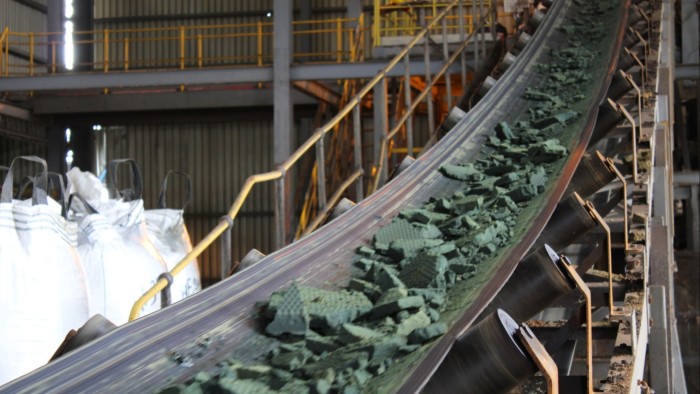Unlock the Editor’s Digest for free
Roula Khalaf, Editor of the FT, selects her favourite stories in this weekly newsletter.
For sale: a giant heap of a much-used and politically strategic metal bouncing back from historically low prices, wrapped in a listed company.
While it may sound like an odd pitch, the case for Cobalt Holdings, which plans to raise about $230mn on the London stock market next month, looks decent. The Democratic Republic of Congo, home to more than three-quarters of the global supply, imposed a four-month moratorium on exports in February. That arrested sliding prices of the blue metal, which goes into batteries, munitions and much else besides.
Investors — including commodities trader Glencore, which will supply the metal and take a 10 per cent stake — will have exposure to a metal whose demand is expected to grow at a compounded annual rate of 9 per cent over the next decade. What they won’t have is any of the operational risk associated with miners.
The company is new, but boss Jake Greenberg has form, having created a similar vehicle for uranium. Shares in UK-listed Yellow Cake are up 120 per cent over the past five years, well over twice the gains on the FTSE 100 and handily beating the uranium spot price to boot.
Risks attach. The DR Congo, smarting at the price-crunching tsunami of cobalt unleashed by Chinese mining group CMOC, has to find a more permanent way of curtailing supply, and may do so as early as this week. But exerting market discipline while dealing with a vertically integrated giant — major shareholder CATL is the world’s biggest manufacturer of electric vehicle batteries — is no easy task. A previous export ban imposed on CMOC in 2022 was unwound, presumably helped by diplomacy.
The DR Congo may opt to impose a more permanent ban or quota system this time round. But that leaves stockpiles; last time, these amounted to nine months’ worth. Bear in mind, too, that cobalt is a byproduct of copper, where production is accelerating to chase higher prices.
Nor will demand grow at the blistering pace of the past decade. Cobalt-containing batteries are already ceding ground to lithium ferro-phosphate batteries, especially in China, the biggest EV market. A similar switch is under way for energy storage batteries, too.
Besides, for many buyers, the equation is about more than energy density; cobalt mining raises environmental, social and governance concerns, such as the use of child labour in the DR Congo.
Cavils aside, what is, in effect, a cobalt inventory owned by shareholders is a neat proposition. It is also a neat way to stack up drums of a commodity that could, in a world where geopolitics remains fractious, see panicked sovereigns swooping in further down the line.
